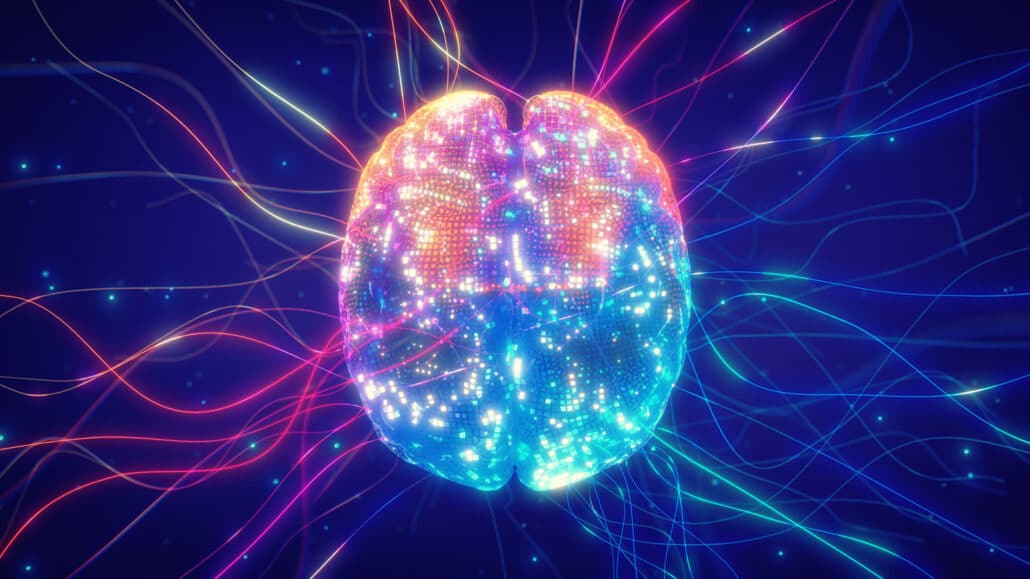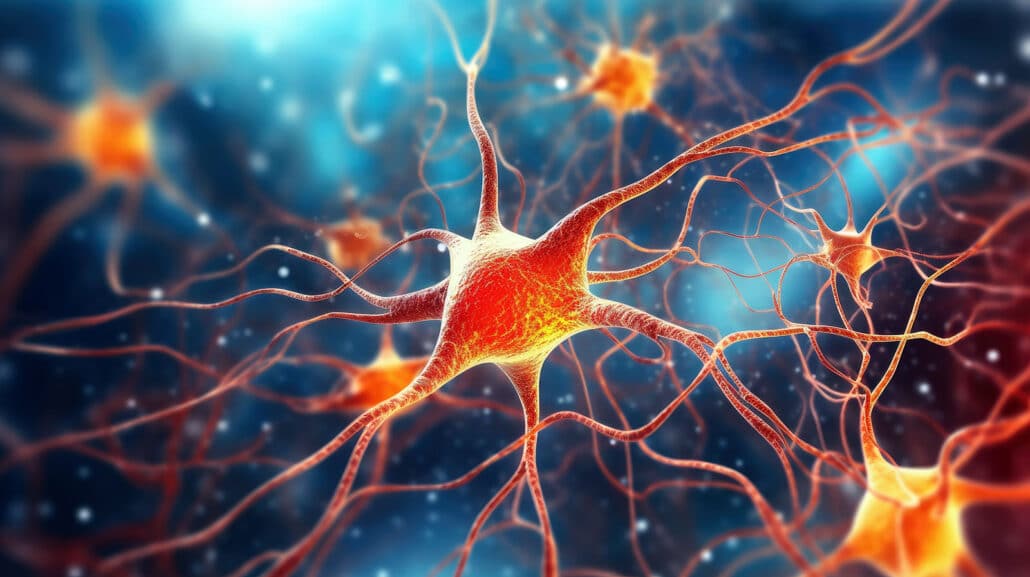With chronic use of drugs and alcohol, the brain changes. It programs itself to make getting and using your number one priority. You don’t have to think about it; the behavior is automatic.

If you are just beginning your recovery journey, you might be wondering how long it will take for the brain to be rewired and if you’ll ever feel comfortable in your own skin.
When you stop ingesting substances and start getting help, you are launching a new program in the brain, one that is diametrically opposed to the program you were running while using.
It’s natural to find this process uncomfortable and even unpleasant at times, especially if you are experiencing withdrawal symptoms. You might feel like you don’t know what you’re doing or even who you are anymore.
As the brain rewires itself, a new program of recovery develops, and it slowly becomes a habit. In the best of worlds, the brain is rewiring itself to make recovery your number one priority.
The time required to rewire the brain and implement a new cognitive program can vary substantially among individuals. According to evidence-based studies performed by Phillippa Lally, a health psychology researcher at University College London, it takes between 18 and 254 days for a new behavior to become automatic. The average length of time is 66 days.
Table of Contents
Neurogenesis and Neuroplasticity
Neurogenesis is the creation of new brain cells in the central nervous system (CNS). Neuroplasticity, on the other hand, is the ability of the brain to customize the baby brain cells as they grow in response to new demands from within the body and from the environment.
Neuroplasticity is what allows the brain to rewire itself as new information is introduced, new learning takes place, or in response to an injury, disease or trauma. It can improve cognitive functioning, help the brain adapt to new conditions and assist the CNS in developing new habits and behaviors.
The evidence supporting this claim is limited but promising. Researchers have learned that parts of the brain can regrow. Thanks to neuroplasticity, the new neurons can restore functions that appear to be lost.
Neurogenesis and Neuroplasticity in Brain Rewiring After Addiction
Scientists at the NIH have demonstrated that substance use disorder is a brain disease that’s long-lasting, difficult to treat, and highly complex. Fortunately, neuroplasticity allows the brain to rewire itself after detoxing from a damaging substance.
Because of the brain’s inherent ability to change, adapt and heal, existing treatments for addiction can help recovering people to reduce cravings and sidestep relapse.
Until recently, scientists believed that humans got all of their brain cells at birth. Any brain cells that die along the way are lost forever. However, recent evidence suggests that we can grow new brain cells as adults. These fresh cells make brain rewiring possible regardless of the damage caused by addictive substances and alcohol.
If brain rewiring in recovery is possible, and new brain cells are being born, than it would make sense to feel like you don’t know who you are or what you’re doing. It suggests that the rewiring process is underway.

Encouraging Neurogenesis
Researchers now believe that not only can you grow new brain cells and rewire your brain for recovery, but you can also partake in activities that stimulate new cellular growth.
The treatment programs discussed below are thought to not only fuel the birth of new brain cells and help the brain heal, but also to protect existing cells that have remained undamaged.
Daily workouts
Exercise is the most effective way jump start the growth of new cells that aid in rewiring the recovering brain. It’s especially healing for those recovering from opioid and opiate addiction. Regular workouts are good medicine, whether they’re aerobic or muscle building. Here are just a few of the many benefits that working out regularly has to offer:
- Reduces the incidence of chronic disease
- Lowers anxiety levels
- Decreases symptoms of anxiety like breathlessness, palpitations and sweating
- Mitigates the effects of mental health issues
- Promotes cardiovascular health
- Improves quality of life
- Increases ability to manage stress
- Helps with depression
- Reduces cravings
- Improves active coping ability
- Helps to regulate emotions
In animal studies, University of Chicago researchers found that exercise increased cell production in the brain as well as the amount genetic information encoded. Brain function improved, and the cells were better equipped to store information for learning and memory.
Scientists at the University of Pennsylvania found that aerobic exercise increased the size of the brain by two percent while reversing age-related cell loss by one to two years.
The brain benefits from mental exercise as well. Seeking out stimulating new environments and doing at least one new thing every day helps to maintain optimal brain function regardless of age.

Stress management
Both chronic and acute stress reduce neurogenesis in adult brains. Although chronic stress cannot kill you, it can wear you down so much that new problems take hold. Chronic stress can cause structural changes in the brain that reduce the brain’s ability to function optimally while overwhelming the immune system in the bargain.
A 2021 literature review revealed that mental health conditions like anxiety, depression, fatigue and pain correlate strongly with chronic stress. Physical conditions associated with stress include digestive disorders, memory disorders, diabetes, heart disease, heart attack and cancer, especially in the breast.
Protein molecules that are tasked with helping brain cells to grow and develop decrease when exposed to chronic stress and restrict neurogenesis in adults. Healthy coping strategies like meditation, physical exercise, spending time with loved ones, adequate sleep, a positive attitude and having fun can all reduce stress levels and make you feel better.
Getting plenty of sleep is especially important while the brain is in rewiring mode. Sleep is restorative. It supports health, strength and a feeling of well-being. Sleep is also when the brain releases toxins so they don’t build up and negatively impact the rewiring.
One of the best forms of stress management treatments for individuals suffering from addiction is cognitive behavioral therapy or CBT. This one fosters impulse control by fixing the behavioral pattern that leads to drug use, which also encourages the creation of positive neural pathways.
Additionally, other addiction treatment methods can also help significantly when it comes to long-term addiction recovery, such as support groups, positive interventions with a healthy support system, and of course, medical detoxification
Balanced nutrition
Rewiring the human brain after it has been damaged by drug addiction can be mentally, physically, spiritually and emotionally exhausting. A healing brain needs the best nutrition it can get. Here are some foods that have restorative properties and can help with healing an injured brain:
- Avocados
- Tuna and other oily fish
- Dark chocolate
- Eggs (organic are best)
- Coffee
- Olive oil
- Green leafy vegetables
- Berries, especially blueberries
- Nuts and seeds, especially walnuts
Brain Dysfunction Caused by Alcohol and Drugs
People who are recovering from addiction have decreased frontal cortex activity, according to Dr. Nora Volkow, director of NIH’s National Institute on Drug Abuse. A compromised frontal cortex can keep you from getting professional help, even if the consequences of not doing so are life-threatening.
Dr. George Koob, director of NIH’s National Institute on Alcohol Abuse and Alcoholism, adds that “The brain actually changes with addiction, and it takes a good deal of work to get it back to its normal state. The more drugs or alcohol you’ve taken, the more disruptive it is to the brain.”
Researchers now believe that addiction hijacks key areas of the brain. It takes over the prefrontal cortex, which is designed to preserve survival by making life-affirming decisions, and starts making death-affirming decisions instead.
As an addiction progresses, it takes over the pleasure and reward circuits by flooding them with chemicals until your only source of satisfaction becomes the drug. Choices made under the influence of substances are all about feeding the beast.
Regardless of an individual’s drug of choice, the addictive process is always the same. When satisfaction levels drop, the withdrawal symptoms will keep you coming back for more. If you’re lucky enough to find what you want, you’ll get a few hours of peace and quiet before the beast is hungry again.

When Does Dopamine Production Resume After a Brain Injury?
It’s different for everyone. A little more than two months is average. Some people recover faster than others. The best way to get dopamine production back on line is with behaviors that support neuroplasticity and by participating in the recovery process. If it takes longer to feel the effects of dopamine, don’t despair. Healing will come as long as you don’t give up.
Are Endorphins the Same As Dopamine?
Dopamine and endorphins are both neurotransmitters, and although they are related, they have somewhat different functions. High dopamine levels activate feelings of joy, love, empathy and fulfillment. Dopamine boosts motivation, and it stimulates the brain’s reward system.
Endorphins also generate positive feelings, and high endorphin levels stimulate dopamine production. But endorphins provide pain relief too, and they reduce the effects of stress.
They are released during exercise and pleasurable activities like eating your favorite ice cream or having sex. Additionally, endorphins can strengthen the immune system, increase feelings of self-esteem, relieve pain, banish depression and anxiety, sharpen memory and maintain cognitive health.
People recovering from an opiate and opioid addiction may be especially sensitive to the effects of low endorphin levels while the brain is in the rewiring process. Low energy levels can be especially debilitating.
Exercise may be the most effective way to increase endorphin levels, especially aerobic exercise such as running, walking and dancing. Laughing can raise endorphin levels and have other welcome effects on the body.
Recovery can be uncomfortable in the early stages when you don’t know which way is up. Nevertheless, as long as you stay on track, neurogenesis and neuroplasticity will be working in your favor. The more energy you invest in the recovery process, the more peace of mind you will enjoy.
You can achieve long-term recovery from any addiction, and we can help you do it. Just one phone call to a reliable treatment center can open the door to a miracle.
FAQ
Can your brain recover from drugs?
References
- https://psychcentral.com/health/what-is-neuroplasticity
- https://newsinheahttps://www.verywellmind.com/adult-neurogenesis-can-we-grow-new-brain-cells-2794885lth.nih.gov/2015/10/biology-addiction
- https://newsinhealth.nih.gov/2015/10/biology-addiction
- https://www.verywellmind.com/adult-neurogenesis-can-we-grow-new-brain-cells-2794885
- https://jamesclear.com/new-habit
- https://study.com/academy/lesson/neurogenesis-definition-research.html
- https://qbi.uq.edu.au/brain-basics/brain-physiology/what-neurogenesis
- https://www.ncbi.nlm.nih.gov/pmc/articles/PMC4631114/
- https://psychcentral.com/stress/is-stress-the-number-one-killer
- https://www.castlecraig.co.uk/addiction-resources/rewiring-your-brain-after-addiction/
- https://www.ncbi.nlm.nih.gov/pmc/articles/PMC2805706/
- https://www.verywellmind.com/what-are-endorphins-5025072
- https://www.medicalnewstoday.com/articles/320839
- https://www.medicalnewstoday.com/articles/320839#low-endorphins
Published on: 2023-12-29
Updated on: 2024-09-24

